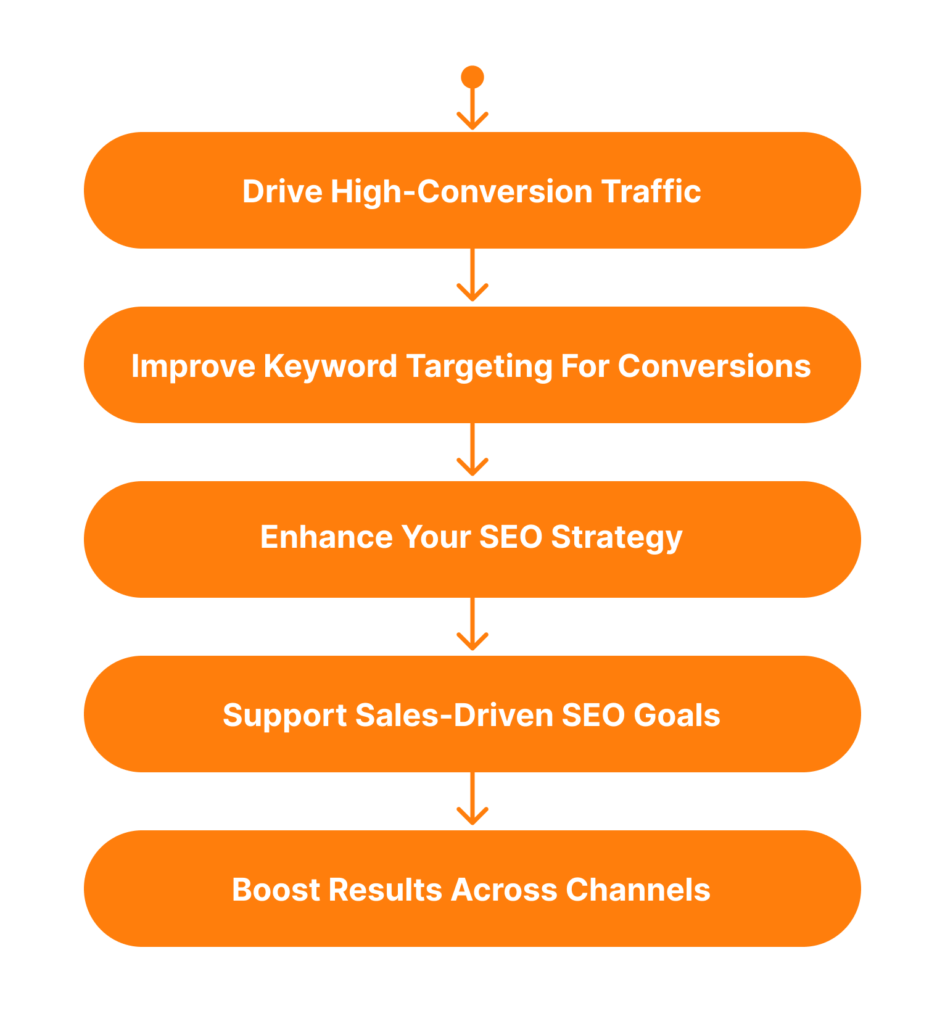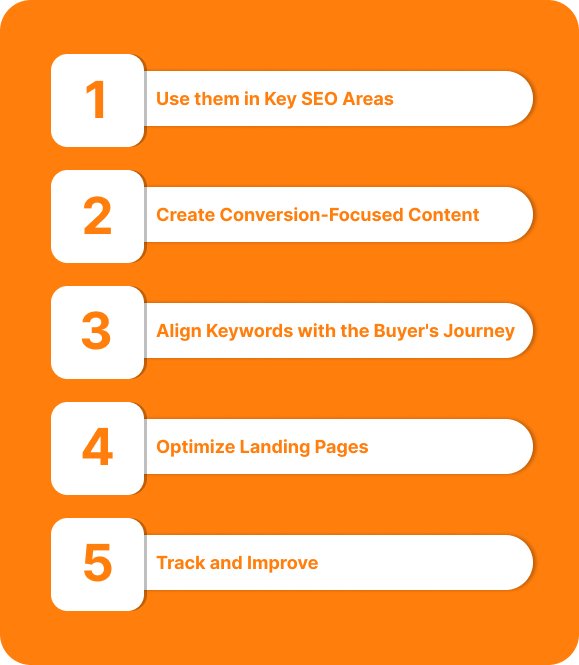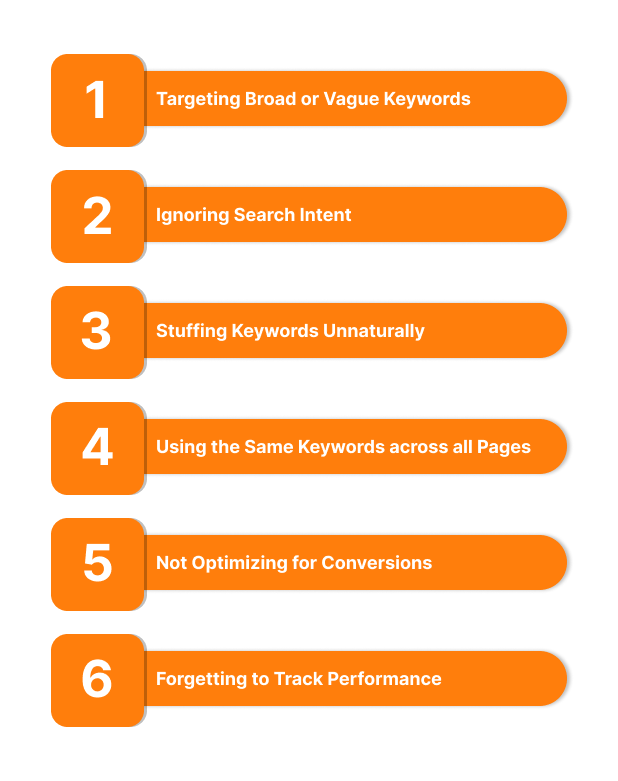Summary:
When it comes to boosting your website’s SEO, choosing the right keywords is essential. While many focus on high search volume or competitiveness, there is another type of keyword that can bring you even more success: commercial intent keywords. These hidden gems are your secret weapon for optimizing your website for conversions and increasing sales.
In this blog, we’ll explore why commercial intent keywords are your secret weapon for SEO success and how to utilize them for maximum impact on your website’s performance.
Understanding Commercial Intent Keywords
Commercial intent keywords are search terms indicating a user’s readiness to make a purchase or engage with a service. These keywords are essential for driving conversions and improving your SEO strategy.
Why Focus on Commercial Intent Keywords?
- Higher Conversion Potential: These keywords attract users who are further along in their buying journey, increasing the likelihood of conversions.
- SEO Success: Targeting buyer intent keywords for SEO helps you connect with the right audience, ensuring your content is relevant to what they’re searching for.
How to use Commercial Intent Keywords
- Target Buyer-Specific Phrases: Focus on terms like “buy,” “discount,” or “best [product]” to capture high-conversion traffic.
- Optimize Landing Pages: Align your landing pages with the keywords, providing the information users need to make a decision.
- Use in Paid Ads: Use commercial intent keywords in PPC campaigns to reach users ready to purchase.
Incorporating commercial intent keywords into your digital marketing efforts ensures you’re reaching an audience that’s ready to take action, boosting both traffic and sales.
Why are Commercial Intent Keywords Important for SEO?
Commercial intent keywords play a vital role in driving qualified traffic that’s more likely to convert. Instead of attracting general visitors, these keywords bring in users with clear buying intent—boosting both traffic quality and sales opportunities.

1) Drive High-Conversion Traffic
These keywords help you attract users who are ready to take action—whether it’s buying, booking, or signing up—making them powerful high-conversion keywords for SEO.
2) Improve Keyword Targeting for Conversions
By focusing on intent-based keyword targeting, you align your content with what users are looking for. This means better engagement and higher conversion rates.
3) Enhance Your SEO Strategy
Using buyer intent keywords for SEO strengthens your overall SEO keyword strategy by targeting transactional and search intent keywords that matter most to your business.
4) Support Sales-Driven SEO Goals
Incorporating commercial keyword targeting helps you go beyond just ranking well—it supports actual business goals like lead generation and sales, leading to SEO success with commercial intent keywords.
5) Boost Results Across Channels
Commercial intent keywords for digital marketing are not just for SEO—they also improve PPC, content marketing, and email campaigns by focusing on users who are more likely to convert.
If you’re looking to increase conversions with keywords, focusing on commercial intent is one of the most effective moves you can make.
How to Identify Commercial Intent Keywords
1) Look for Buying Signals in Keywords
Words like “buy,” “discount,” “best,” “deal,” “coupon,” or “free shipping” often show buyer intent. These are known as transactional keywords, meaning the searcher is close to making a purchase.
2) Use Keyword Research Tools
Tools like SEMrush or Ahrefs can help you find high-conversion keywords for SEO. Look for terms with clear search intent and high commercial value.
3) Analyze Competitor Content
Check what keywords your competitors are ranking for in product pages, comparison posts, or reviews. These often contain strong commercial keyword targeting that you can apply to your content.
4) Consider the Buyer’s Journey
Think about what someone might search for right before buying. For example:
- Early stage: “best smartphones 2025”
- Ready to buy: “buy iPhone 15 online”
This helps with smart keyword targeting for conversions and improves your SEO keyword strategy.
5) Focus on Intent, Not Just Volume
A keyword might have a lower search volume but stronger intent. It’s better to target terms that match buyer intent keywords for SEO, even if fewer people search for them because those visitors are more likely to convert.
Tip: Once identified, make sure you know how to use commercial intent keywords properly–by placing them in product pages, landing pages, and ad companies for sales-driven traffic.
Incorporating Commercial Intent Keywords into Your SEO Strategy
Once you have found the right commercial intent keywords, the next step is to use them wisely in your SEO strategy. These keywords help you reach people who are ready to take action—boosting traffic, sales, and overall SEO success.

1) Use them in Key SEO Areas
Place your buyer intent keywords in important spots like:
- Page titles and meta descriptions
- Headings (H1, H2)
- URLs
- Image alt text
- First 100 words of content
This helps search engines understand your page and improves your chances of ranking.
2) Create Conversion-Focused Content
Build pages that match what users are looking for. For example:
- Product comparison pages
- “Best of” lists
- Reviews and buying guides
This kind of content works well for keyword targeting for conversions and brings in high-conversion traffic.
3) Align Keywords with the Buyer's Journey
Use different commercial keyword targeting based on how close someone is to making a purchase.
- Early stage: “Top laptops for students”
- Ready to buy: “Buy Dell Inspiron 15 online”
4) Optimize Landing Pages
Make sure your landing pages are clear, fast, and easy to navigate. Add strong calls to action (CTAs) and match the page content with the commercial intent keywords you’re targeting.
5) Track and Improve
Use tools like Google Search Console or analytics platforms to see which keywords are bringing in traffic and conversions. Adjust your SEO keyword strategy as needed to keep improving results.
Common Mistakes to Avoid when Using Commercial Intent Keywords
Using commercial intent keywords can boost traffic and conversions–but only if you use them the right way. Here are some common mistakes to avoid so your efforts lead to real SEO success and results.

1) Targeting Broad or Vague Keywords
Avoid using general terms that don’t show clear buying intent. Instead, focus on buyer keywords and transactional keywords like “buy,” “order,” or “best deal” to attract users who are ready to take action.
2) Ignoring Search Intent
Just because a keyword sounds good doesn’t mean it matches what the user wants. Make sure your keywords align with search intent and offer content that delivers real value.
3) Stuffing Keywords Unnaturally
Overloading your content with commercial intent keywords can hurt readability and rankings. Aim for natural placement that flows with the content and improves user experience.
4) Using the Same Keywords across all Pages
Each page should target specific commercial keyword targeting. Repeating the same phrases on every page can confuse search engines and reduce your chances of ranking.
5) Not Optimizing for Conversions
Even if you’re driving traffic, it won’t matter if your site isn’t set up to convert. Combine keyword targeting for conversions with strong calls-to-action, fast page speed, and mobile-friendly design.
6) Forgetting to Track Performance
Not monitoring which high-conversion keywords for SEO are performing means you miss chances to improve. Use tools like Google Search Console to track and adjust your SEO keyword strategy.
Avoiding these common mistakes helps you make the best use of your commercial intent keywords, leading to better rankings, more conversions, and stronger results in both SEO and digital marketing.
Conclusion
Focusing on commercial intent keywords is one of the smartest ways to boost your SEO performance and drive meaningful results. These keywords help you attract visitors who are ready to take action—leading to more clicks, more conversions, and ultimately more sales.
By understanding their importance, learning how to find them, and using them strategically in your content and campaigns, you can strengthen your SEO keyword strategy and reach the right audience at the right time. Just remember to avoid common mistakes, focus on user intent, and keep tracking your results to improve over time.
Whether you’re working on SEO success with commercial intent keywords or applying them in digital marketing, the key is simple: choose your keywords wisely, use them effectively, and always aim for value-driven content that meets your audience’s needs.
Divyesh Savaliya
As an enthusiastic content writer by profession and an eager researcher, I delve into diverse subject matters to create the best SEO-optimized content pieces ready to captivate audiences







1 comment
Great insights! This really gave me a new perspective. Thanks for sharing.